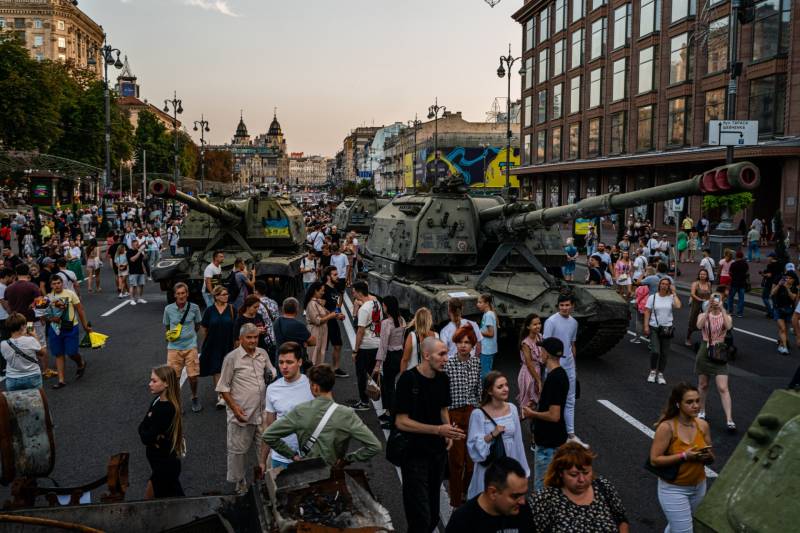War in Ukraine: latest developments

Stay tuned with 24 News HD Android App

Here are the latest developments in the war in Ukraine:
- New Ukraine toll -
Nearly 9,000 Ukrainian soldiers have been killed since Russia's February 24 invasion, Ukraine's commander-in-chief says.
Valeriy Zaluzhny tells a forum that Ukraine's children need particular attention "because their fathers have gone to the front and are maybe among the nearly 9,000 heroes who have been killed".
The last estimate dates back to April when Ukrainian President Volodymyr Zelensky said that up to 3,000 Ukrainian soldiers had been killed and 10,000 injured.
- Ukraine accused over car bombing -
Russia's FSB security service says that Ukraine was behind a car bombing in the outskirts of Moscow that killed the daughter of hard-line Russian ideologue Alexander Dugin.
Dugin -- an outspoken ultranationalist intellectual and a vocal supporter of the Kremlin's offensive in Ukraine -- is thought to have been the likely target of the attack.
Daria Dugina was killed Saturday when a bomb placed in a Toyota Land Cruiser went off as she drove on a highway some 40 kilometres (25 miles) outside Moscow.
Russian President Vladimir Putin on Monday describes the bombing as a "vile, cruel crime".
Over the weekend, Ukrainian presidential adviser Mykhaylo Podolyak denied that Kyiv had anything to do with the bombing.
- EU to discuss training Ukrainian troops -
The European Union will debate the launch of a major training operation for Ukrainian forces in nearby nations, the bloc's foreign policy chief Josep Borrell says.
The proposal will be discussed next week at a two-day meeting of EU defence ministers which gets underway in Prague on Monday, Borrell tells a press conference in Santander, in northern Spain.
Any such operation would be a step up from the military training that several nations are already providing to Ukrainian forces under bilateral agreements.
- Bulgaria turns to Gazprom -
Bulgaria announces that it will seek talks with Russian energy giant Gazprom to resume deliveries of natural gas ahead of the winter season.
Gazprom cut deliveries to Bulgaria in late April after the EU member's previous centrist government refused to pay in rubles.
Bulgaria is almost totally dependent on Russia for its annual consumption of 3.0 billion cubic metres of natural gas, and has been scrambling to secure alternative deliveries since the cut.
